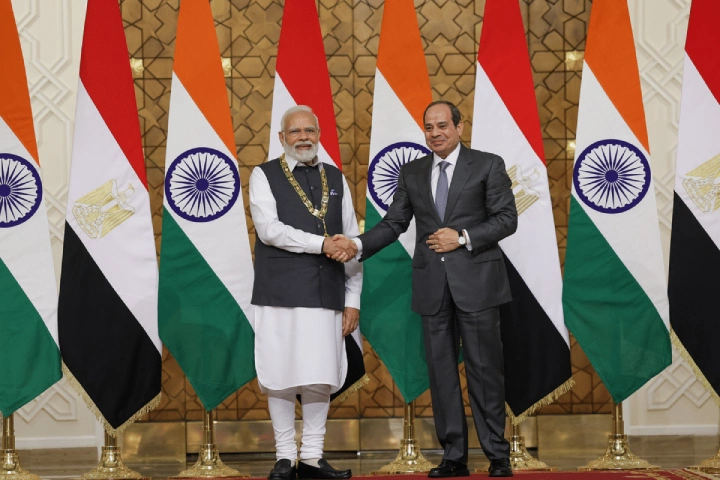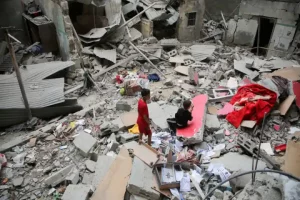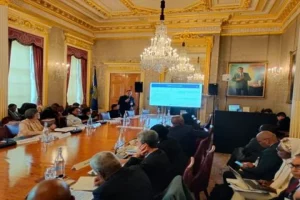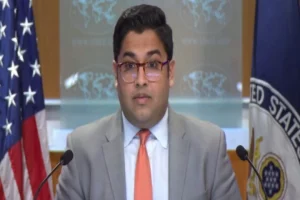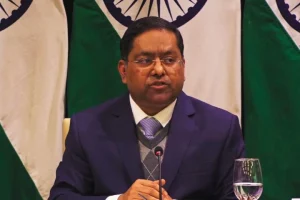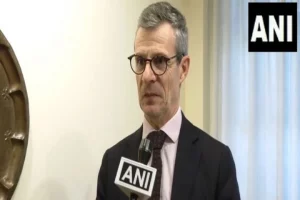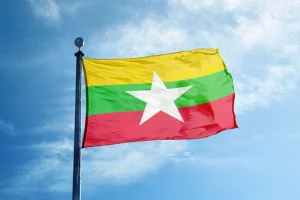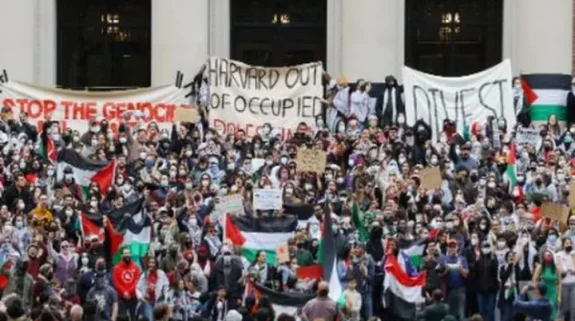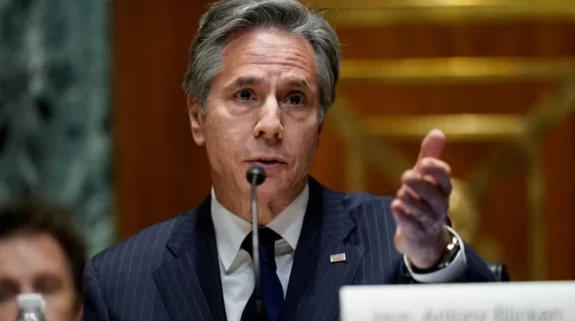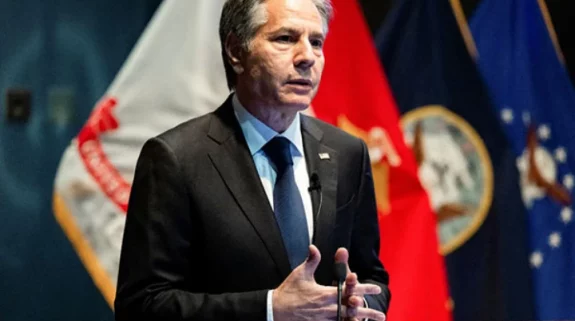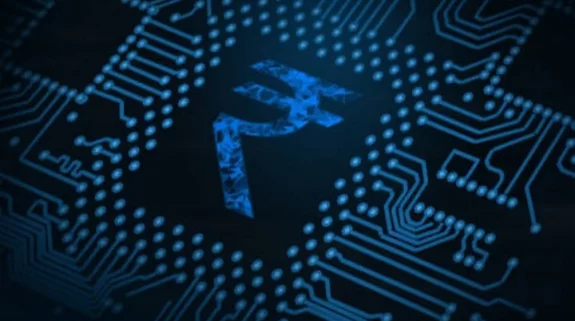Mohammed Soliman is a prominent strategist known for formulating the strategy and vision behind the I2U2 initiative and providing extensive analysis of India’s engagement in the Middle East. He additionally serves as a Director at the Middle East Institute, where he explores the intersection of technology, geopolitics, and business in the region.
A native of Cairo, Soliman has established himself as one of the most influential voices on US-Middle East relations, regional politics, and the role of the region in an era of great power competition. In this interview with Aditi Bhaduri he offers some insights on the recently-concluded and pathbreaking visit of Prime Minister Narendra Modi to Cairo.
Excerpts:
How would you assess PM Modi’s visit to Cairo and the outcome?
Prime Minister Modi’s visit is profoundly significant, not only due to its rare occurrence after a hiatus of over two decades but also given its important role in shaping a new framework for Egypt-India bilateral relations in the post-Cold War era. This visit serves as a strong testament to the enduring bonds that link the peoples of India and Egypt, vividly illustrating the vibrancy and resilience of their interpersonal connections. Moreover, Modi’s presence at the illustrious Pyramids, in the company of the distinguished Egyptian Prime Minister, serves as a potent emblem, rekindling the profound historical and cultural affinities that have thrived between these venerable civilizations. Indeed, their relationship transcends the conventional boundaries of international politics, manifesting a profound entwining of shared cultural heritages. In this manner, the visit serves to fortify the very foundation of their bilateral relations while resolutely affirming the unwavering longevity of their historical and cultural ties.
There were expectations for some movement forward on the sale of Tejas light combat aircraft, helicopters, and missiles Egypt had evinced interest in. But that did not happen. Has Egypt rethought this interest?
Defence deals involve intricate considerations spanning security, finance, and strategic implications, necessitating a lengthy timeline for finalization. Egypt is actively discussing with India’s Hindustan Aeronautics Limited (HAL) to secure a contract for 35 Tejas LCA Mk-1A aircraft for its armed forces. The deal includes aircraft delivery and comprehensive technology transfer to enable local production in Egypt. With its robust air force capabilities, Egypt proves to be a suitable partner for defense collaboration, offering an alternative avenue beyond Western, Chinese, and Russian options in technology and geopolitics.
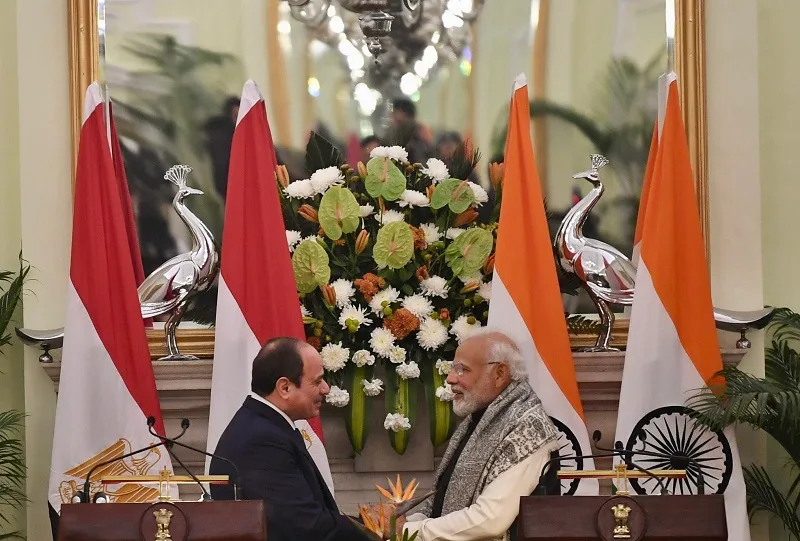
The potential realization of the Tejas deal holds great significance, strengthening India-Egypt military ties and fostering an autonomous defense industry, particularly in aviation. Egypt’s expanding network of defense alliances in Africa positions it as a pivotal gateway for India’s growing defense capabilities, enabling access to key geopolitical markets. Africa presents a primary target for India’s advancement and an increased presence.
What are Egypt’s expectations from India? Why would an Egyptian-India relationship be exciting to Egyptians?
Egypt acknowledges the growing significance of India’s expanding influence in Asia and globally, both in terms of its economy and geopolitical standing. As a result, Delhi is positioned to become a crucial and strategic partner for Cairo. Egypt’s objective is to surpass Nigeria and establish itself as the largest economy in Africa, thereby consolidating its position on the continent and in the broader Mediterranean region. In this context, there is substantial potential for fostering trade and investment cooperation between India and Egypt. India’s expertise in sectors such as defense, technology, pharmaceuticals, agriculture, and renewable energy closely aligns with Egypt’s economic aspirations. Furthermore, Egypt’s advantageous geographic location also grants India access to key markets in the Middle East, Europe, and Africa, making it an ideal trading partner for Delhi.
Egypt has very close ties with China. How will it balance its relations with China vis-a-vis those with India?
Delhi recognizes Egypt as a crucial gateway to Africa, aligning with the perspectives of Beijing, Tokyo, and Seoul. Although Chinese companies have made significant investments in the Suez Canal zone, their dominance is not pervasive across all sectors. Additionally, Japan, Korea, and India possess their own economic interests and capabilities that can contribute to the transformation of the Suez Canal into a manufacturing hub, facilitating access to African markets and leveraging the benefits of the African Continental Free Trade Area. As the development of the Suez Canal zone advances and garners more funding, Indian companies have the potential to seize opportunities and actively participate in its growth – contingent upon the incentives provided by the Egyptian government. Notably, discussions are already underway between India and Egypt regarding the establishment of an Indian Zone in the Suez Canal. Cairo’s objective is to enhance the value of the Suez Canal by attracting investments from diverse sources and fostering international collaboration.






